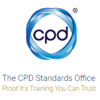
Ultimate guide to: Essential digital skills
Basic digital skills are now an essential part of our everyday lives. Learn more about Essential Digital Skills, what they are and how to develop them.
30 March 2022
Digital literacy is essential for many of us these days, almost every job has an element of digital skills required, and we’re using more technology in our personal lives and around the house too. Knowing what the basic digital skills are and how to develop your own digital know-how can be really useful.
In this blog we’ll explain why basic digital skills are so important, what the Essential Digital Skills Framework is, and how you can improve your digital skills.
Why are digital skills important?
Having digital skills – even just basic ones can make a big difference in both your personal and work life. Having digital skills for the workplace can make you more employable, and knowing how to use personal devices to keep you connected with friends can help you to avoid being isolated.
Digital skills are considered to be so important, that in 2019, the UK government updated their national standards in the Essential Digital Skills Framework to provide support and guidance for adults across the UK to develop their digital skills. These include: communicating, problem solving and online safety, to help not only with their personal lives, but in the workplace too.
Many employers look for digital skills when recruiting staff, so it’s useful to have some digital abilities if you’re on the hunt for a new job.

What are basic digital skills?
Digital skills in the workplace can help with many different parts of the day-to-day running of a business, including helping staff communicate more effectively and efficiently, keeping it compliant with rules and regulations required by law, and also to help the business grow and make money.
Some of the basic digital skills required for the workplace include being able to use email effectively, knowing how to browse the internet safely and using data tracking tools to help analyse things like stock levels and staff rotas.
You can find out more about useful digital skills for the workplace in this blog.
What is the Essential Digital Skills Framework?
The Essential Digital Skills Framework defines the digital skills adults need to safely benefit from, participate in and contribute to the digital world. It was created in 2015 to support providers, organisations and employers across the UK who offer training for adults to secure their essential digital skills. You can read about the history of the framework in this GOV.UK blog.
Just like in construction, when you’re building a framework for a house, it’s vital to have a really solid foundation. So before you get started, or help someone else get started with the Essential Digital Skills Framework, it’s important to understand the basics first. Here’s a list of the digital foundation skills which underpin all essential digital skills in the framework:
Digital Foundation Skills |
Examples |
|---|---|
|
I can:
|
I can:
|
If you want to find out more about digital foundation skills, there’s learning available for each topic in Digital Wings.
The Essential Digital Skills Framework outlines five key skills and provides examples of tasks that people should be able to complete to demonstrate each skill. Each skill has a distinct focus, but the fifth skill – being safe, legal and confident online – is also embedded across the other four.
The five categories of essential digital skills for life and work are:
- communicating
- handling information and content
- transacting
- problem solving
- being safe and legal online
Let’s take a closer look at each skill:
1. Communicating
Knowing how to use email, and other communication apps, use and share electronic documents, and post updates on social media platforms can help you keep in touch with other people, but can also be useful in the workplace too. See what digital skills you might already have and what you might find helpful to learn more about:
Skills for life |
Examples |
|---|---|
|
I can:
|
I can:
|
Additional skills for work |
Examples |
|---|---|
|
I can:
|
I can:
|

2. Information handling
Being able to store, manage and find digital information securely can help you to stay organised and keep control. Knowing how to search for trustworthy sources when researching something can help you avoid misinformation and scams, and understanding how to store pictures in the cloud can help give you peace of mind that even if you lose or break your tech, your precious memories are still available to you. Here’s some more examples:
Skills for life |
Examples |
|---|---|
|
I can:
|
I can:
|
Additional skills for work |
Work examples |
|---|---|
|
I can:
|
I can:
|

3. Transacting
Being able to complete digital forms, and make purchases online are useful skills to have. Using your device to keep your bills paid on time, and buy that last minute gift can be really handy too. Take a look at some of the other skills that sit under transacting.
Skills for life |
Examples |
|---|---|
|
I can:
|
I can:
|
Additional skills for work |
Work examples |
|---|---|
|
I can:
|
I can:
|
4. Problem Solving
The internet can help us solve problems quickly and easily – if you know how to do it. Knowing where to find FAQs (frequently asked questions) and how to use chat facilities can help you answer questions and solve problems. Being able to find and watch a tutorial on YouTube might even be able to get you back on track with the project you’re working on. Here are some other ways digital skills can help you solve problems:
Skills for life |
Examples |
|---|---|
|
I can:
|
I can:
|
Additional skills for work |
Work examples |
|---|---|
|
I can:
|
I can:
|

5. Being safe and legal online
This section of the Essential Digital Skills Framework is part of each of the previous four skills.
Everything you do online should be done safely and securely. Having a good understanding of your responsibilities for the use of digital tools in the workplace is something you’ll need to demonstrate, but equally, being able to spot something that’s not quite right and knowing how to report things when you’re online at home can keep you out of trouble.
Read the list below to see what things you should be aware of and how you can make sure you’re using the internet safely and home and work:
I can: |
I understand: |
|---|---|
|
|
Skills for life examples |
Skills for work examples |
|---|---|
|
|

How to develop digital skills
There are many ways to learn and develop your digital skills, and help others to develop theirs too. Learning what your strengths and weaknesses are first can help you to prioritise what skills you want to brush up on.
Digital Wings might be able to help you with some of the topics you’d like to learn more about, but there are other options available including: local colleges, online learning courses, and maybe even learning through your place of work. Do some research and find out what might suit the way you prefer to learn – make sure to read any terms and conditions, and check to see if there are any fees to pay on any of your digital learning.
Once you’ve got a good understanding of the digital foundation skills, you’re ready to move onto the Essential Digital Skills Framework to help you build and grow your confidence and skills, to help you make better digital decisions and become more digitally savvy in the workplace. Continue your digital learning today with Digital Wings. Sign up below.
If you enjoy helping others where you work or want to support people in your community get to grips with their technology, then the Digital Champion programme could be for you. Not only will you be doing something you enjoy, you’ll also be teaching essential digital skills to help people become more employable or avoid becoming digitally excluded and isolated. Register below.

